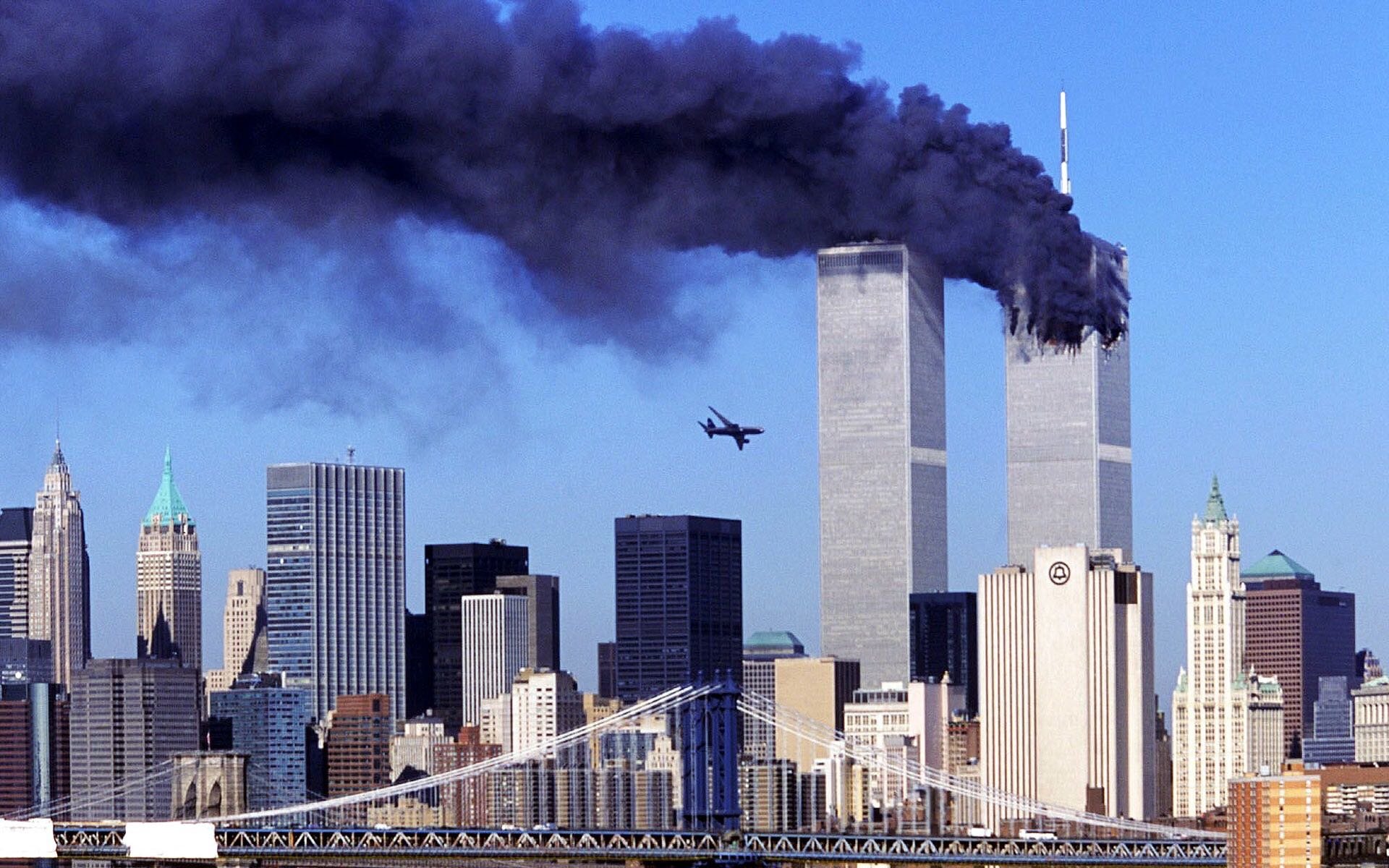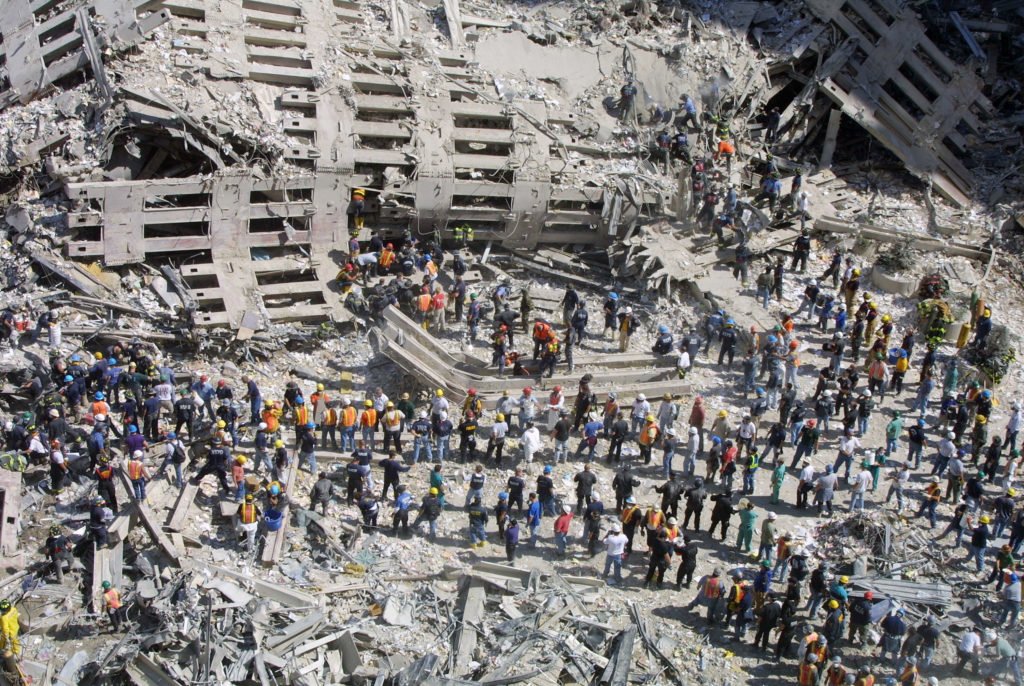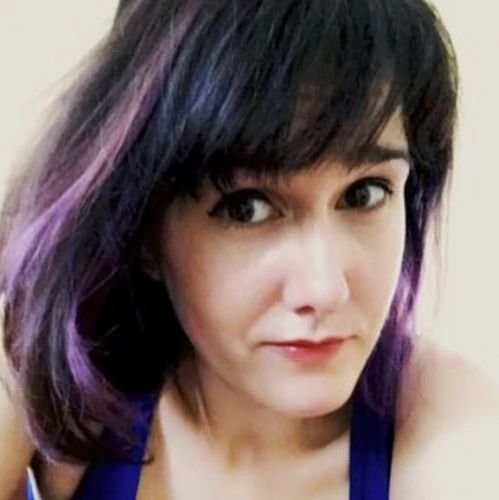
The smell was insistent and abhorrent, the sting of burning metal filling my nostrils. Walking up from the subway at an unfamiliar station, I emerged into a cloud of dust so thick that I could barely see the man standing next to me. I was completely turned around, so I asked him, “Which way is the East River?” He simply shrugged, just as lost as I was.
It was the Monday after Sept. 11, 2001, and people were finally allowed back to work in Lower Manhattan.
At our office, just a few blocks from where the World Trade Center had stood just a week before, we had an all-hands-on-deck meeting where three women who had been caught in the avalanche of the collapse wept in the corner of the room. Our boss handed out little paper masks, the kind they have in a doctor’s waiting room so you don’t pass your cold to other patients. When my friends and I went outside at lunchtime and saw the National Guard trucks rumbling down Water Street, we immediately tossed the masks in the garbage. They weren’t going to make any difference against whatever we were breathing in.
September 10th had been rainy and gray, and I had stupidly worn sandals to work. I ended up walking home through puddles with wet toes. The next day, the sky was a brilliant blue. As I went to turn off my television shortly before 9 o’clock, prepared for the beautiful morning, the anchor came on screen looking utterly befuddled, announcing that a plane had crashed into the World Trade Center.
Everyone who was in New York that day has some version of this same story. The news was a mess at first. They said it was a small plane, or maybe a commuter plane. No one seemed quite ready to take the whole thing seriously. I called my boss to tell him I thought it was best that I didn’t get on the train, since my line went right under the Trade Center. “Oh yeah, don’t come in,” he said. “Today’s a wash. They’re evacuating the building, just in case.”
Just in case. It wasn’t an emergency yet. It wasn’t an emergency until the distant live feed on the Today Show showed what looked like a wasp streak across the sky into the other tower and explode into a massive fireball. That was the moment I panicked — when I heard Katie Couric’s calm voice start to shake.

I tried to call my parents to let them know I was safe, but all the circuits were busy. My boyfriend came rushing home from school, terrified that I was down there, that I was trapped on a subway under the building. But I wasn’t. I was watching, paralyzed with shock, as one building and then the other crashed down like deflated accordions. Knowing how many people were in that building, knowing how many people were around the building, knowing that my friends could be there, unable to do anything but stare at a TV screen while the world right outside my door had changed forever.
We went outside and walked to the nearby hospital to give blood, but they were turning everyone away. There was no need for blood and a surplus of donors, all of us just wanting to do something, anything to make our existence feel less futile. Cars were bumper to bumper headed up Amsterdam Avenue, trying to get off the island and going absolutely nowhere. We were trapped in Manhattan, not knowing what might happen next. A fighter jet flew low overhead and everyone startled.
We met up with my boyfriend’s classmate on the quadrangle at Columbia. My boyfriend was born in Israel; his friend was from Iran. The three of us walked to the West End Pub. It sounds like the beginning of a dumb joke — a Muslim, a Jew, and an Episcopalian walk into a bar — but on that day, it was fitting. None of our cultural differences mattered in that moment. We were just humans, and we were bereft.
Those of us who worked downtown stayed home all week as they slowly opened the lower part of the island, street by street. You could go past 14th Street, past Houston, past Canal. And finally we went back into that miasma of lingering smoke. For months we watched as massive gnarled bars of half-melted steel were loaded onto barges outside our office window, headed for the landfill on Staten Island. Every day we watched the Trade Center leave Manhattan piece by piece.
But the feeling of unity that first appeared on September 11th did not leave, at least not for a little while. Somehow what it meant to be a New Yorker had changed, and instead of brushing past each other brusquely on the streets, not making eye contact, there was a sudden strange undertone of concern for one another. On the subway, as we slowly rumbled through the destroyed Chambers Street station, people looked at each other to see if we were all okay.
We weren’t, of course. There was no way to really come to terms with what had happened, what the city had now become — simultaneously a tomb and a monument. Over time the smoke faded, the concern dissipated, and the population became as outspoken and divided as ever. On that day and the days that followed, though, we were briefly united. Not united in what our response should be, never united in politics. It was still New York, after all. But we feared for one another, mourned for one another, and genuinely cared for one another.
The thing I remember most from the time following September 11th was that blinding dust. But the thing I remember most from the day itself was when a Muslim, a Jew, and an Episcopalian walked into a bar. And sat together, and felt loss together. None of the differences mattered. We were all New Yorkers that day, and we would face it together.

Maggie BenZvi is a contributing editor for Coffee or Die. She holds a bachelor’s degree in political science from the University of Chicago and a master’s degree in human rights from Columbia University, and has worked for the ACLU as well as the International Rescue Committee. She has also completed a summer journalism program at Northwestern University’s Medill School of Journalism. In addition to her work at Coffee or Die, she’s a stay-at-home mom and, notably, does not drink coffee. Got a tip? Get in touch!
BRCC and Bad Moon Print Press team up for an exclusive, limited-edition T-shirt design!
BRCC partners with Team Room Design for an exclusive T-shirt release!
Thirty Seconds Out has partnered with BRCC for an exclusive shirt design invoking the God of Winter.
Lucas O'Hara of Grizzly Forge has teamed up with BRCC for a badass, exclusive Shirt Club T-shirt design featuring his most popular knife and tiomahawk.
Coffee or Die sits down with one of the graphic designers behind Black Rifle Coffee's signature look and vibe.
Biden will award the Medal of Honor to a Vietnam War Army helicopter pilot who risked his life to save a reconnaissance team from almost certain death.
Ever wonder how much Jack Mandaville would f*ck sh*t up if he went back in time? The American Revolution didn't even see him coming.
A nearly 200-year-old West Point time capsule that at first appeared to yield little more than dust contains hidden treasure, the US Military Academy said.












